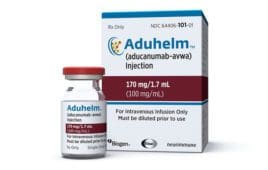
Activity-dependent neuroprotective protein syndrome (ADNP syndrome) is a rare genetic condition that causes developmental delays, intellectual disability and autism spectrum disorder symptoms in thousands of children worldwide. There is no known remedy for the disorder.
A new Tel Aviv University study finds that the drug candidate CP201, also known as NAP, may improve vocal communication abilities that are underdeveloped in ADNP patients. The research establishes that vocal impediments and disrupted neural connectivity in ADNP-deficient mice were normalized following daily injections and intranasal administrations of CP201.
Research for the groundbreaking study was led by Illana Gozes, the Lily and Avraham Gildor Chair for the Investigation of Growth Factors and head of the Elton Laboratory for Molecular Neuroendocrinology at TAU’s Sackler Faculty of Medicine, in collaboration with Prof. Anne McKinney of McGill University and her research group and Dr. Vlasta Korenková of the BIOCEV Institute of Biotechnology. TAU doctoral students Gal Hacohen-Kleiman, Shlomo Sragovich, Gidon Karmon, Iris Grigg and Dr. Metsada Pasmanik-Chor conducted the research for the study, which was published in the November print issue of the Journal of Clinical Investigation.
Giving ADNP Children a Voice
ADNP syndrome is caused by truncating mutations of the ADNP protein, which is essential for brain formation.
“Children with ADNP syndrome suffer from intellectual disability, delayed language acquisition and speech impediments,” says Gozes, who discovered the ADNP gene nearly 20 years ago. “Many children are never able to speak at all.
“We developed a mouse model of ADNP deficiency that offered a closer look at the ADNP-deficient brain. We discovered that vocal communication deficiencies are in fact connected to synaptic pathology, and that we could normalize this by injecting the mouse model with daily NAP treatments or administering intranasal doses to the mouse. Specific gene regulation substantially improved on most of the parameters that we tested, which is great news for the future of ADNP and autism research.”
Gozes’ decades-long ADNP research led to the development of CP201, an important nerve-cell-protecting snippet of ADNP that enhances its activity. It increases nerve cell plasticity that improves memory and cognition through interaction with microtubule end-binding proteins.
“We have seen CP201’s positive effects in Alzheimer’s and other neurodegenerative diseases,” says Gozes. “We have now found that vocal communication impediments in ADNP-deficient mice were successfully normalized. The CP201 systemic injections or intranasal daily applications in nonsuckling mice affected global changes in brain plasticity, substantially improving developmental milestones.”
The new study was conducted over two years. The researchers used cognitive behavioral tests and gene expression analysis to assess the developmental milestones of 72 ADNP-deficient mice. They also applied ultrasonic vocalization analysis to some 28 ADNP-deficient mice and compared these with the results of 50 “normal” mice.
A Promising Candidate for Clinical Trials
Ramot, Tel Aviv University’s technology transfer arm, licensed NAP (CP201) to Coronis Neuroscience for development. The U.S. Food and Drug Administration (FDA) has since granted CP201 Orphan Drug status for the treatment of ADNP syndrome in the United States.
According to Prof. Gozes, the current study paves the way for a clinical trial. “NAP (CP201) has demonstrated brain target engagement and great potential for treating social, motor and vocal communication impediments in future intellectual disabilities/autism-oriented clinical trials,” she says.
Coronis Neurosciences has just completed a pre-IND (investigational new drug program) meeting with the FDA with positive outcomes and a road map to successful IND submission for CP201 in the ADNP syndrome. The IND program is the means by which a pharmaceutical company obtains permission to start human clinical trials.
Filed Under: Neurological Disease




